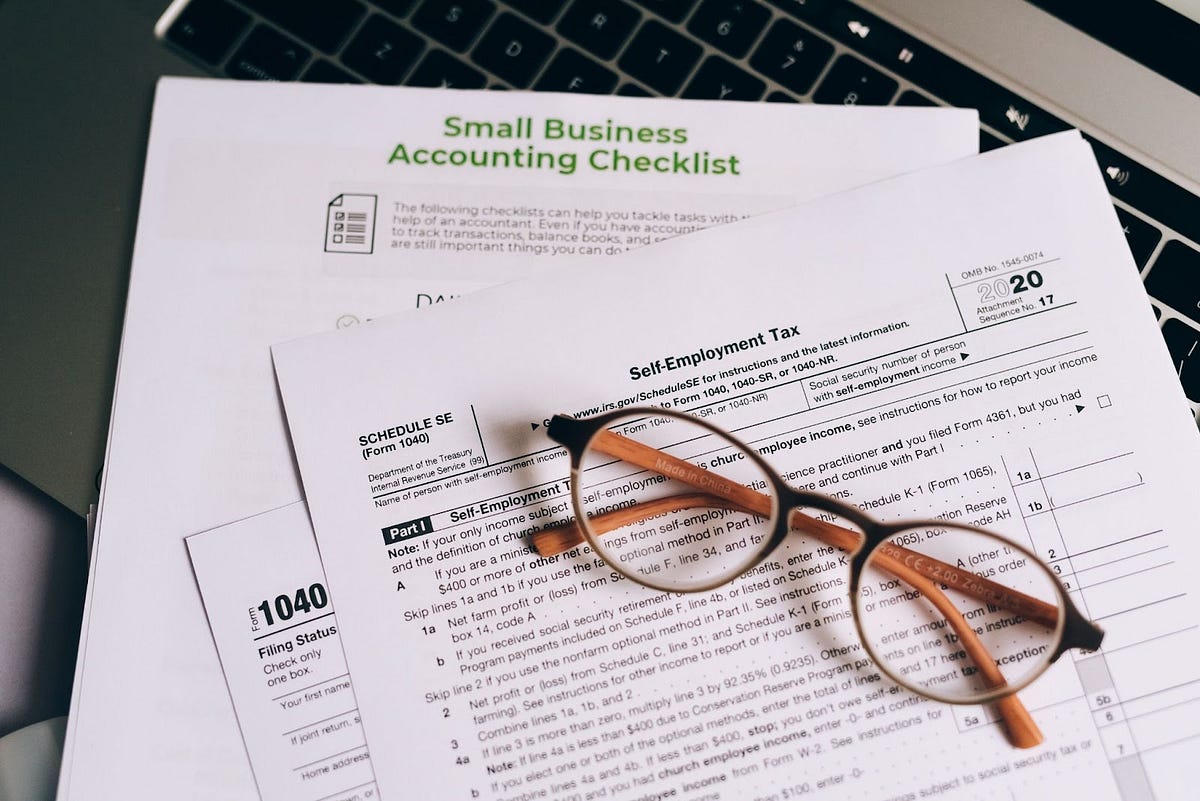You may be under the impression that most companies in the US are mega-corporations, but believe it or not, that’s not the case. In fact, over 99% of businesses in the US are classified as small businesses, and they account for nearly half of all jobs.
If you are considering becoming one of the 32.5 million small business owners in the US, the journey won’t be a walk in the park — but once you’ve truly made it, the sense of accomplishment will be unparalleled.
This guide is designed to help you start your own small business from scratch. We’ll cover everything from coming up with a viable idea to registering your company and marketing it. When you’re planning to start a small business, you can keep this on hand as your go-to reference.
We’ll list the steps and then go through each in more detail:
- Determine your business viability
- Choose a business structure
- Open a business bank account
- Set up your accounting system
- Purchase insurance
- Set up your social media and website
- Source your products and services
- Start trading!
Let’s get started.

Before you start: is a small business the right choice for you?
Starting a small business from scratch can be an incredibly rewarding experience, but it’s not without its challenges. It’s important to assess your motives for starting a business and make sure that you have what it takes to make your venture a success. Here are some factors to consider:
- Are you motivated by the challenge of starting and running your own business?
- Do you have the time and energy to devote to a small business?
- Do you have the financial resources to sustain a business in its early stages?
- Can you realistically expect to make a profit in your industry?
- Do you have the skills and knowledge necessary to run a business in your industry?
If you can answer “yes” to most of these questions, then starting a small business from scratch may be the right choice for you. But remember, there are no guarantees — it will take hard work, determination and a lot of perseverance to make your small business a success.
Now, let’s get into the nuts and bolts of starting your own small business.
Starting your business step-by-step
To help you get your new venture up and running, we’re going to take you through the essential steps, from choosing a viable business to marketing your products or services.
1. Determine your business viability
In 2022, the number of small businesses is higher and ever — which means that most of the markets you want to enter are likely saturated. So, the key to starting a small business from scratch is doing your homework upfront to determine whether there’s a market for what you want to sell.
One way to do this is by conducting online surveys and social media polls, as well as by polling friends and family about their needs; however, this won’t give you a complete picture. You also need to research your target demographic and their spending habits.
Websites like The U.S. Small Business Administration (SBA) offer great resources that can help you determine not only the viability of your business, but also what products or services are in demand.

2. Choose a business structure and register
Once you’ve determined that starting your business is financially viable, it’s time to choose a business structure and register your company.
There are several types of business structures, but the most common for small businesses are sole proprietorships, partnerships, and limited liability companies (LLCs).
- Sole proprietorships are the simplest structure to set up and maintain. As the name suggests, this type of business is owned and operated by a single individual.
- Partnerships are similar to sole proprietorships, but involve two or more individuals. This ideal if you are starting a small business with a work partner.
- LLCs are a bit more complex than sole proprietorships and partnerships, but offer some key benefits, such as limited personal liability for business debts and taxes. There’s a little more paperwork involved, so it’s important to check which laws apply to your state.
3. Open a business bank account
At this point, you may be busting to start up your website or design your business cards — but there are a few more formalities to take care of before you can really get going.
The first is to open a business bank account. This will help to keep your personal and business finances separate, and will also make it easier for you to manage your accounts online.
Is it absolutely necessary to open a business bank account? No, but it is highly recommended. Not only does it make things simpler from a bookkeeping standpoint, but many banks also offer lower interest rates on business loans and lines of credit.

4. Set up your accounting system
One of the most important steps in starting a small business is setting up your accounting system. If your finances are a mess, you will have a difficult time succeeding. You need to track your income and expenses so you can make informed decisions about your business.
There are many different ways to set up your accounting system. You can use a simple spreadsheet, or you can use a more sophisticated software program like QuickBooks.
Whichever method you choose, make sure you track your income and expenses on a regular basis. This will help you stay on top of your finances and make informed decisions about your business.
5. Purchase insurance
No matter how promising your small business may be, you can never be too prepared for the unexpected. This is where small business insurance comes in. It can help protect your business from losses that may occur, such as property damage or liability claims.

When selecting a policy, it’s important to consider the specific risks your business faces. For example, if you run a restaurant, you’ll need coverage for property damage and food spoilage. If you operate a home-based business, you’ll need liability coverage in case of an accident or injury on your property.
Here are the main assets small businesses should consider insuring:
- Property damage
- Liability claims
- Business interruption
- Data loss/theft
- Employee dishonesty
It can be tempting to try and save money by going without insurance, but this is a risky move that could end up costing you much more in the long run.
6. Set up your website and social media accounts
With the administrative tasks out of the way, now comes the fun part! It’s time to start promoting your small business and building a community around it. How do you want your business to look? Ask yourself the following before starting your website and social media accounts:
- What services or products do you offer?
- Who is your target audience?
- Do you have a company name and slogan?
- What type of design would you like for your website and social media pages (corporate, fun, etc.)?
Once you have a general idea, it’s time to start creating your online presence. This includes a website and social media accounts for your business.
Your website should include the basics such as your company name, what services or products you offer, contact information, and an “About” section. You may also want to include photos of your work, customer testimonials, and an “Events” calendar if you plan on hosting any workshops or parties.
Your social media accounts should be consistent with the culture and branding of your business. Be sure to post regularly (at least once a week) and include interesting content that your target audience will find useful or entertaining. You can also use social media to promote special offers, discounts, and news about your business.

7. Source your products and services
This is quite a vague step, as it will largely depend on the type of business you are starting. Let’s split into two sections: products and services.
Products
If you’re selling products on your own store or through a third-party site like Amazon, then one important administrative task is to find a supplier. You can search for manufacturers or distributors online, or of course, you may have already chosen to produce handmade items.
There are a few things to keep in mind when sourcing products:
- Price: You’ll want to find a supplier that offers competitive prices without compromising on quality.
- Quality: Make sure the supplier you choose has a good reputation for producing high-quality products.
- Delivery time: It’s important to find a supplier that can deliver your products in a timely manner, otherwise it could damage your business’ reputation.
It’s also important to keep profit margins in mind when sourcing products. You’ll need to make sure you’re making a healthy profit on each sale — so find a supplier that offers a good margin without compromising on quality or delivery time.
Services
Offering services like massage, therapy, accounting, and more can be a great way to start a small business. But before you can offer your services, you’ll need to do some research and find the right clients.
One way to find clients is through online directories like Yelp and Google My Business. You can also reach out to local businesses and offer your services — this can be a great way to get word-of-mouth referrals.
It’s also important to set your rates correctly. You’ll want to make sure you’re making a healthy profit on each service, while still being competitively priced.

8. Start trading!
If you’ve checked off everything on the list of what it takes to start a small business, you’re ready to go! You’ve put in the hard yards, and now it’s time to trade.
It’s not going to be totally smooth sailing, but with a bit of grit and determination you’ll be able to make your small business thrive. Be sure to keep on top of your accounts, marketing and customer service; it’s these little things that will help your small business grow.
Here are ten final tips to help you launch your business:
- It’s okay to change your business strategy if it’s not working. While it is important to be persistent in the beginning stages of your small business, it’s equally wise to monitor your progress and make improvements where necessary.
- Celebrate your successes, no matter how small they seem. Acknowledge each victory, as it will help keep you motivated throughout the challenging times.
- Don’t be afraid to ask for help when you need it. There are plenty of people who are more than willing to offer their advice and feedback, so don’t be shy in seeking it out.
- Learn to say no. As your small business grows, you’ll find that you won’t be able to do everything yourself. It’s important to delegate tasks and set boundaries in order to maintain a healthy work-life balance.
- Stay organized and keep track of your finances. This will help you stay in control of your business and make wise decisions when it comes to spending money.
- Don’t be afraid to experiment with new ideas. As the saying goes, fortune favors the brave — so go ahead and try something new, even if it’s not guaranteed to succeed.
- Take time out for yourself. This is especially important in the early stages of your small business when you’re working long hours and putting a lot of pressure on yourself.
- Persevere through the tough times. As with any new venture, there will be bumps in the road. But if you stay focused and don’t give up, you’ll eventually reach your goals.
- Look outside of your own experiences for ideas and advice. There are plenty of resources available, both online and offline, so don’t hesitate to seek out assistance.
- Be proud of your small business — you’ve worked hard for it!

Final thoughts on starting a small business
Starting a small business from scratch can be a daunting task, but once you have everything in place, it can be a very rewarding experience. The steps outlined in this article provide a basic framework for starting your own small business.
However, as with anything else in life, be sure to consult with professionals and do your own research to get the most accurate information. The most important thing to remember when starting a small business is that it takes time and hard work to succeed.
Be patient and stay focused on your goals, and you will eventually achieve the level of success you desire.
All the best in your entrepreneurial journey!
